First, what exactly is a business?
Every time you do something for money on your own – each time you sell something at a yard sale, mow a lawn, fix something – you are engaging in a business activity. If you are just doing anything you can for money, good for you! These are business activities.
And you are in good company historically! As long as one person has been better at something than another person, they have figured out ways to trade their services with each other. If you give me that sheep, I’ll fix your fence. I’ll give you a pound of corn if you let me grind the rest of it in your mill. I’ll knit you a sweater for a jar of your jam. Now we use money instead of just trading for products, but the result is the same.
But all this kind of economic activity doesn’t necessarily make a business per se. When you sell a product or service you are in business. Doing a little bit of everything is admirable, but it isn’t a business.
A business is a kind of financial activity that specializes in something. Nike doesn’t sell soup, and Campbell’s doesn’t sell shoes. If you start a business, you will want to figure out the things you want to specialize in.
Types of Businesses
Across the world, businesses come in various forms. Each of these has different legal and tax implications. Rising Innovator cannot give you specific recommendations, and this article is not intended to replace good legal advice. To get you started on your research, here are the main kinds of businesses and their major advantages and disadvantages. (There are some other kinds of businesses, such as limited partnerships, that are outside the scope of this article).
Important: most businesses can be converted from one kind to another without too much trouble, so it is possible to start as one kind and later change it legally if you need to.
Sole Proprietorship
First, there are sole proprietorships. You are a sole proprietor if you are working solely for yourself and do not have a legal corporation under you. There is no paperwork to file to be a sole proprietor – just say you are one, and you are done. Because they are neither Corporations or LLCs, a sole proprietorship has no shares or members. You can’t share the business as a sole proprietorship, so there are no partners, either. Whereas corporations have what is called the corporate shield, a sole proprietor has no legal protection from being sued. If the business is sued, your personal assets could be at stake.
Advantages: super easy to set up. All income of the business is reported as personal income, so no extra taxes or fees (though you do need to pay self-employment tax, it should be about the same as if you earned the money working at a job). You don’t need to file a lot of extra paperwork at the end of the year.
Disadvantages: hard to share the business, difficult to get investors. No legal protection from being sued.
Limited Liability Company (LLC)
An LLC may be the easiest type of legal structure for a new business to take. It has the legal protection of a corporate shield, but fewer requirements and taxes than most corporations. LLCs do need to file annual reports with the state they are formed in, and they must have articles of organization. LLCs do not have shares, instead they are composed of members. It is not always easy to transfer ownership or bring in new members.
Like sole proprietorships and S corporations (below), LLCs typically use what is called a pass-through tax structure; this means that the LLC typically does not pay extra income taxes, though the members will be taxed on the profits as if it were income they received. There are tax and legal implications that make LLCs preferable to corporations in some cases, and less preferable than others. Again, we always recommend talking to an attorney about your circumstance.
Advantages: Easier to form and less reporting than a corporation. Offers more legal protection than a sole proprietorship. Pass through taxation.
Disadvantages: difficult to transfer ownership or bring in new members. More paperwork than a sole proprietorship, and you will have to pay annual dues to your state.
Corporations
Whereas LLCs are organized by members, Corporations issue shares to “share holders”. Any business that issues “shares” or “stock” is a corporation. Corporations have more paperwork associated with them than LLCs, although to be fair this is not overly burdensome. If your business is successful then you can afford to get an accountant to take care of the regular paperwork without much difficulty.
It is very easy to transfer ownership in a corporation – you buy and sell shares. A share is not usually a physical thing (though it can be). For big companies, you would buy or sell shares through what are called “stock exchanges”. This can all be done online very easily. For a smaller company, you buy or sell shares simply by exchanging some money with someone who owns the shares, and receiving a document that says you bought them. Corporations have very strong legal protections for shareholders.
There are two types of Corporations:
C Corporations may have unlimited numbers of shareholders, but they are taxed separately from the shareholders. As a practical consequence, if you own a C corporation then you will be taxed twice: first at the corporate level, and then second when the corporation gives you, the share holder, a dividend.
Because of the double taxation, most owners prefer to organize as S corporations. S corporations are taxed like LLCs and Sole Proprietorships, meaning that all income of the corporation is passed through to the share holders. Smaller business owners often enjoy keeping more of their money because of this single “pass through” taxation. The consequence of this is that if the business makes a lot of money, as a shareholder the government sees that as money which you personally made, and they will tax you for it. S corporations have slightly less regulations than C corporations, but unlike them an S corporation can only have 100 stock holders.
Advantages: Best legal protection. Easier to buy and sell ownership than LLCs. S Corporations have the same tax benefit as an LLC.
Disadvantages: More regulation and paperwork than other types of businesses. C corporations have double taxation.
Non-Profits and Not-for-Profit
Legally there are some slight differences between non-profits and not-for-profits, but in common usage today they are treated the same. A non-profit is an organization that was created for a purpose other than making money.
If you are driven by a mission rather than wanting to get rich, you may want to consider creating a non-profit. These are tax exempt organizations, which can seriously increase the amount of good work they can do with the money they take in. For example, if I have a C Corporation that takes in a dollar, depending on my country then I may have to pay a quarter to half of that dollar to the government. If I have a non-profit, then the entire dollar can be used. Additionally, in most countries non-profits are exempt from paying taxes on purchases, which can significantly reduce the cost of some items.
Non-profits are not owned – if you create one, you do not own it. You cannot buy or sell a non-profit. Non-profits are subject to considerable government oversight, and do require a board of trustees to meet regularly to review the organization’s performance. In fact, it is not unusual for a board of trustees to kick out the very founder of the organization!
Non-profits are great vehicles for raising money; people are much more likely to donate money to a non-profit than they are to any other kind of organization, and many grants are only eligible to non-profits. Non-profits must pay their employees no more than market rates for their labor, and are not allowed to give any extra earned income (profit) to anyone. Non-profits can give you a good salary, but if they do well then the extra money needs to be put back into the organization.
Advantages: No taxes! Better fundraising possibilities.
Disadvantages: Lots of paperwork and regulation. Can’t be sold. Can’t keep any profits for yourself.
So, what legal structure do you need?
We can’t answer that – but our advice is to start small and with as little paperwork as possible. Think about your legal risk. If you are selling art then your liability issues are smaller than if you are selling something that could make someone sick, like cooked food. Talk to a lawyer!





